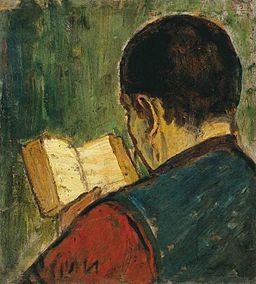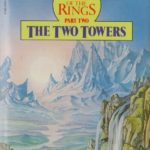Why I Put It Down
 As readers, we’ve all experienced it. That moment in reading a book when you say to yourself, “I can’t finish this book.” Then we’ll give our reason(s) why.
As readers, we’ve all experienced it. That moment in reading a book when you say to yourself, “I can’t finish this book.” Then we’ll give our reason(s) why.
Why one doesn’t finish a book can be varied. A lot of it is subject to taste. I had to close the book, 2001: A Space Odyssey, after reading a whole chapter describing in detail this person’s trip to the moon. Others love that level of description. It bores me to tears.
So while recognizing that fact, here are my top eight reasons, in descending order, why I’m likely to put a book down and stop reading.
8. When I’m Lost
If the writing is such I have a hard time figuring out who’s head I’m in (usually due to a poor attempt at omniscient pov), the list of characters is so huge I need a program to keep them all straight, and/or it is simply hard to decipher what is going on, or have too many run-on sentences like this one, I’ll be so confused I’ll give up.
7. When I Can’t Understand.
I don’t mind learning a few new words, but if the author has a penchant for using rare, archaic words without context to show off his knowledge, it punctures the story with blank holes that are likely important to following the story.
I’m looking for entertainment, not an education. If the later comes along with the former, great! The moment it eclipses the former, I’m finding a new book to read.
6. When Reading Becomes Work.
If your story is more like a puzzle, trying to figure out what the author meant to say because of bad grammar, misspellings, or typos, consider your story toast. It is rare, even among traditionally published books, to not have a typo or other minor problem. But too many such problems, primarily due to a lack of editing, and I’m reaching for another book.
I’m reading a story to be entertained. The moment it becomes work, is the moment I’m no longer going to slog through the author’s meaning maze.
5. When the Story “Jumps the Shark.”
For those not aware, that phrase originated with the TV show, “Happy Days.” The show had such high ratings when Fonzi jumped a series of cars on a motorcycle that the writers couldn’t help but milk it. To up the stakes, they had Fonzi jump a confined shark on water skies. It backfired. The stunt looked so ridiculous that ratings took a nose dive and didn’t ever recover. The term is used to indicate when any story, show, movie, takes a down turn in popularity, usually due to some unnatural gimmick that doesn’t fit, causing people to lose interest.
Unless a book is written by someone like Dave Berry, going overboard on a plot concept or a character can lose me and send me into reason #4.
4. When Plot Holes Destroy the Suspension of Disbelief.
Plot holes in and of themselves won’t ruin a book for most people. The public regularly rave and enjoy movies full of plot holes.
Case in point: Star Trek, the reboot. (Spoiler alert!) You’re telling me that a planet like Vulcan with warp capability, long before Earth, couldn’t have sent a squadron of ships to shoot that chain in half like Spock did at the end? Instead they’re hiding in their cave, seemly ignorant of what is going on. Earth has planetary defenses but not Vulcan?
However, when the plot holes reach a certain level that makes me say, “That would never happen that way,” too many times, I’ll be kicked out of the story and stay that way.
3. When I Don’t Relate to the Characters.
Whether it is because they are stereotypical, one-dimensional, or lack proper motivations, if I can’t in some way relate to them, get into their head, I can’t care about them. I might as well be reading a history book.
2. When There’s No Conflict Within the First Four Chapters.
Either because the story doesn’t have any conflict, or it doesn’t really start until several chapters in. In either case, I’m less likely to wade through backstory, vivid descriptions, and tedious world-building facts without a promise that this is all leading me into a story. No hint or introduction of the plot’s conflict early on, I’m likely to bail.
1. When the Story is Boring.
When I don’t care about the conflict, I don’t care about the outcome. When I don’t care about the characters, I don’t care what happens to them. When I don’t care, the story is boring. If that doesn’t change within the first four chapters (hey, I’m generous), I’m highly likely to close it and move on. I did this with a novel recently by a big-name author.
Those are my top eight. What would you add or not include in your list?
For any publishers and authors who happen to read this, keep these points and those in the comments in mind the next time you write/select a story.
Happy New Year!











































I’m with you all these excuses but number 4 is my biggest concern.
In the last 15 to 20 years I have only had one book I could not finish and I have to thank online reviewers for that. I never read anything unless it is overwhelming loved. Too many books and too little time to read a bad book.
I think you pretty much covered it, Rick.
The only other thing I can think to add is “Unmet expectations”. If the book doesn’t deliver the type of story promised by the cover and marketing blurbs, then I might drop it.
Good addition, Teddi.
Number six shows up a lot when reading fanfics.
Fanfics are such a crapshoot. I’ve pretty well given up on them because I’ve had to wade through so much amateur awful before hitting on something even half decent. And it’s not just the typos. I can only take so much Mary Sue dross before my gag reflex kicks in. And then I hear about fanfic like the ones that are set in the Potterverse but are mostly original and rarely involve characters or even settings from the official books. And then I wail about never being able to find the cool stuff.
Part of my key to finding good ones is to go outside the big guns and find smaller sites with more quality control.
All the list, and Teddi’s addition, too. The longer I edit, the less impressionable I am, the harder a writer has to work to grab and maintain my attention.
I imagine most editors are like me: They have an aptitude for and love of words and stories. However, one of the major downsides of this work is the increasing difficulty in merely reading a book without editing in one’s mind. I can overlook minor stuff if the writing and the storytelling excels. However, any of the items Rick listed is enough for me to ditch a book. Generally doesn’t take me very long to decide whether or not I want to keep soldiering on, or devote my efforts elsewhere.
Yeah, a lot of it comes down to predictability. Editors and English majors and people who read too much TV Tropes can spot the patterns in the story, and so it becomes boring. Granted, a lot of popular lit is expressly about giving the audience exactly what they’re looking for, whether it be needlessly complicated murder mysteries or needlessly complicated conspiracies or needlessly complicated romantic relationships. But cripes, I’d like to see some originality, some EFFORT.
These days length is a big issue for me. A lot of people assume a default length of 500-800 pages and sequels to tell a story that really should be in a single novel of that or less. I guess reading and writing kid lit has impressed on me that you can tell a story in far less space without losing a single thing, and a lot of the books that use that space don’t make good use of it.
A lot of typical or not-so-good stories actually do better when briefer, I think. A lot of old SF novels would be considered novellas now, and editors would ask them to bulk it up and could you make a trilogy so we could sell more books please?
In other words, dm, when most of the story seems to be filler.
I have a cure for such long-winded authors. Read faster. Then slow down at the good parts.
I think Rick covered it pretty well. Usually I’ll slog through a book, just making notes of the stuff I don’t like and mentally write my scathing Goodreads review. I filter heavily, though, and try to only read good books.
I do have a problem with really long novels these days. 300 pages is my sweet spot. Any longer and I start skimming, hoping it’ll end soon. It’s like watching all the extended LOTR movies and getting wiggly in the middle of the Two Towers. Time to turn it off and do something else. In the case of a book, if I hit that “this is too long” spot, I put it down and seldom come back to it.
If I encounter two or more of these things within the first 50-100 pages of a book, I won’t finish reading it:
*sub-par writing skills
*dumbed-down vocabulary
*boring, confusing, or implausible storyline
*lack of connection to or intense dislike of main character
And once in a while I’ve been known to ditch a book simply because it had way too many people, places, and things I couldn’t pronounce.